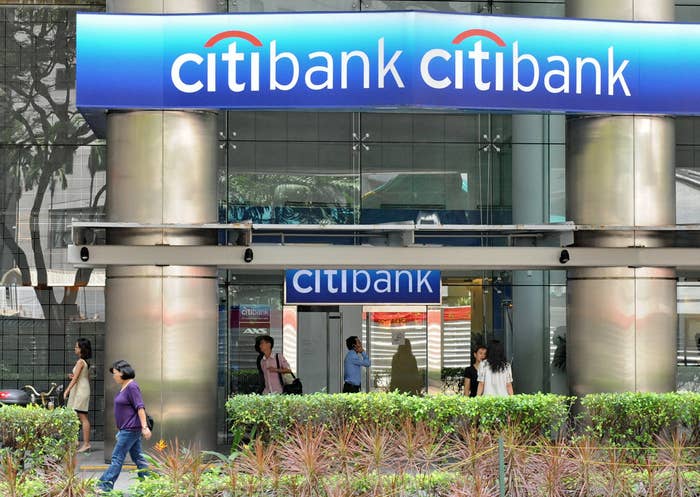
Citi is out of the Federal Reserve's doghouse.
The Federal Reserve has blessed Citi's plan to buy back shares and increase its dividend, as part of the Fed's annual process of stress-testing banks and approving capital return plans. Citi said after the test's results were released that it would buy back $7.8 billion worth of it stock over five quarters and increase its quarterly dividend from 1 cent a share to 5 cents a share. Last year, the Fed made the bank stick with the low dividend and a $1.2 billion buyback through the first quarter of this year.
Two branches of foreign banks — Germany's Deutsche Bank and Spain's Santander —were not permitted to go forward with their dividend plans immediately, and have to wait until the third quarter of this year "to address certain weaknesses in its capital planning processes." Deutsche Bank said in a statement that it's American operation, Deutsche Bank Trust Corporation, had no plans for a dividend.
Bank of America got a pass from the Fed, but still needs to do some extra work. The Fed said in its report that the bank had "exhibited deficiencies in its capital planning process." The Fed noted weaknesses in modeling losses and internal controls, and said that Bank of America should "remediate these deficiencies and resubmit its capital plan by September 30, 2015." If Bank of America doesn't fix up internally, the Fed said, it would "expect to object to the resubmitted capital plan and may restrict Bank of America's capital distributions." Bank of America said it would authorize $4 billion worth of buybacks and maintain its 5 cent per share dividend.
After last year's stress tests, Bank of America discovered that it had made a $4 billion error in calculating how much capital it had, and temporarily suspended its larger share buyback and dividend.
Three other large banks — Goldman Sachs, JPMorgan Chase, and Morgan Stanley —were cleared to go ahead with their buyback and dividend plans, after adjustments following the results of stress tests released last week. All 31 of the country's largest banks and U.S. operations of large foreign banks passed the tests, which measured how a bank's capital levels would be affected by a major downturn in the economy. Goldman Sachs said it would bump up its quarterly dividend from 60 cents to 65 cents.
While all banks passed last week's test, some, like Goldman Sachs and Morgan Stanley, saw their projected capital skirt the regulatory minimum. Goldman paid out $5.5 billion in dividends and stock buybacks last year. CLSA analyst Mike Mayo estimated that Goldman might only be able to pay out $700 million to shareholders this year.
This round of tests include subjective elements, and have in the past embarrassed some major banks, notably Citi, which was twice prevented from increasing its dividend and buybacks by the Federal Reserve. Capital is the money that banks raise from shareholders and keep in retained profits, and is more resilient during downturns, when profits dry up or turn to losses.
Citi brought a senior executive out of retirement, Gene McQuade, to focus solely on passing this year's test. Citi only started paying out any dividend again in 2011, after an almost two-year hiatus. It has been paying out a measly dividend of just one cent per share each quarter since then.
The Wall Street Journal has reported that MacQuade told Citi executives that passing the stress test was an "existential question." In after-market trading following the announcement Wednesday, Citi's stock was up just over 1% to $52.91. "We are committed to delivering meaningful returns of capital to our shareholders and today's decision will allow us to begin doing so." Citi Chief Executive Officer Michael Corbat said in a statement.
